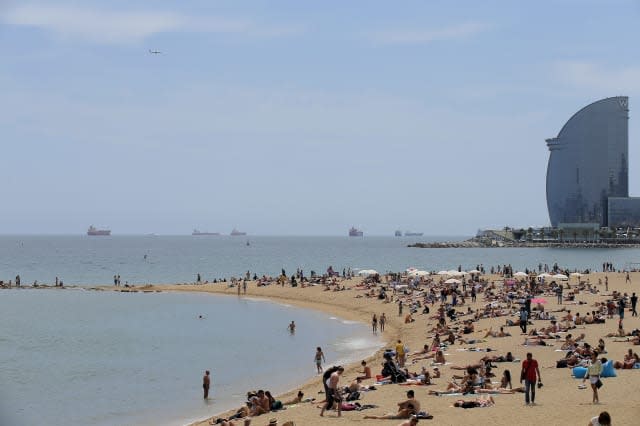Barcelona passes law to curb tourist numbers

Barcelona is set to pass an accommodation law to crack down on tourist numbers in the city.
The city's 1.6 million residents are heavily outnumbered by the 32 million annual visitors.
See also: Dubai hotel unimpressed with sexy model Instagram photos
See also: Dead body found under hotel mattress after couple report bad smell
According to the Guardian, the new law is known as 'the special urban plan for tourist accommodation', and will limit the number of beds on offer at hotels and tourist apartments.
There will also be a moratorium on building new hotels and a halt in issuing licences for tourist apartments.
It's believed the effects of the plan will not be felt until 2019 as there are already a number of projects in the pipeline.
The curb on tourism is very much backed by the mayor, Ada Colau.
Ms Colau initiated the plans for the moratorium on licences for new hostels and hotels and also targeted sites offering tourist home stays, like Airbnb.
Last August, she threatened to fine Airbnb-type platforms if they marketed properties that don't appear on the Catalan tourism register.
She said: "An internet platform cannot become a means to thwart the regulations and to shelter illegal tourist apartments. In that case we do have to intervene very forcefully."
Airbnb told The Local at the time: "Barcelona should be introducing smart policies to support local residents - not acting against them. They should follow the example of cities like London, Paris and Amsterdam, who have introduced clear, modern rules for home sharing."
Manel Casals, director general of the Barcelona hoteliers association, said the plan of limiting beds is not the correct one. He told the Guardian: "The focus of the plan is wrong. Of the 32 million people who visited Barcelona last year, only 8 million stayed in hotels. Twenty-three million were day-trippers who spend very little money in the city. You're not going to regulate tourism by limiting the number of beds. They're not regulating tourism, they're only regulating where people sleep."




